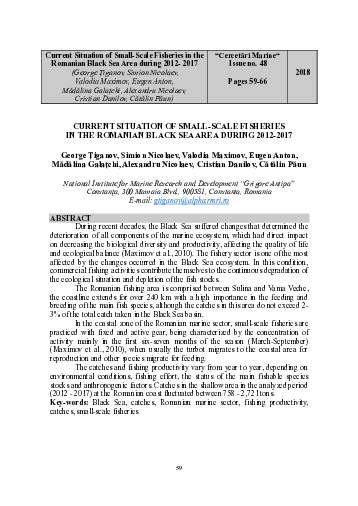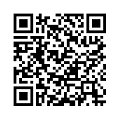Current Situation of Small-Scale Fisheries in the Romanian Black Sea Area during 2012- 2017
DOI:
https://doi.org/10.55268/CM.2018.48.59Keywords:
Black Sea, catches, Romanian marine sector, fishing productivity, small-scale fisheriesAbstract
During recent decades, the Black Sea suffered changes that determined the deterioration of all components of the marine ecosystem, which had direct impact on decreasing the biological diversity and productivity, affecting the quality of life and ecological balance (Maximov et al., 2010). The fishery sector is one of the most affected by the changes occurred in the Black Sea ecosystem. In this condition, commercial fishing activities contribute themselves to the continuous degradation of the ecological situation and depletion of the fish stocks.The Romanian fishing area is comprised between Sulina and Vama Veche, the coastline extends for over 240 km with a high importance in the feeding and breeding of the main fish species, although the catches in this area do not exceed 2-3% of the total catch taken in the Black Sea basin.
In the coastal zone of the Romanian marine sector, small-scale fisheries are practiced with fixed and active gear, being characterized by the concentration of activity mainly in the first six-seven months of the season (March-September) (Maximov et al., 2010), when usually the turbot migrates to the coastal area for reproduction and other species migrate for feeding.
The catches and fishing productivity vary from year to year, depending on environmental conditions, fishing effort, the status of the main fishable species stocks and anthropogenic factors. Catches in the shallow area in the analyzed period (2012 - 2017) at the Romanian coast fluctuated between 758 - 2,721 tons.

Downloads
Published
How to Cite
Issue
Section
License
This is an open access journal, which means that all content is freely available without charge to the user or his/her institution. Users are allowed to read, download, copy, distribute, print, search, or link to the full texts of the articles, or use them for any other lawful purpose, without asking prior permission from the publisher or the author. This is in accordance with the BOAI definition of open access.






